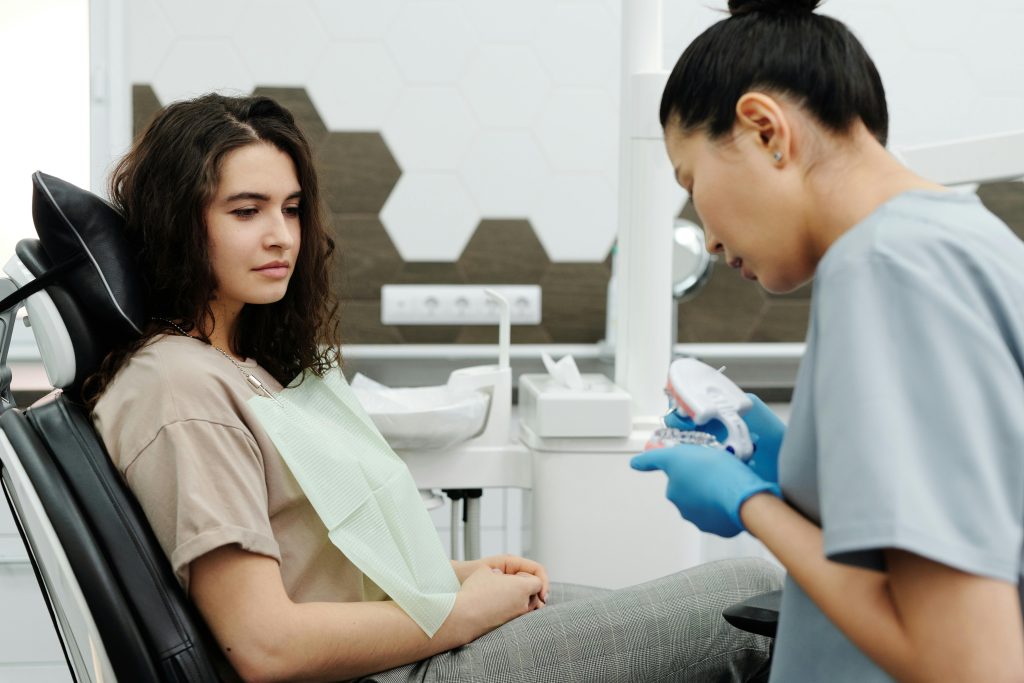Many people suffer from dental anxiety, which is to say, they experience fear and stress about visiting the dentist. In West Palm Beach, Florida, dental anxiety affects approximately 36% of the population, with an additional 12% experiencing extreme dental fear, according to the American Dental Association. This anxiety can result in avoidance of necessary care, which affects oral health and can lead to more severe dental issues over time.
Learning how to alleviate this type of anxiety can help make a dental visit more pleasant, and working with a dentist in West Palm Beach, FL, who understands these concerns can make a significant difference. Here are some tips to ease your anxiety while at the dentist.
Understanding Dental Anxiety
Dental anxiety is common, and it is a condition caused by many things. This is usually due to bad experiences in the past, a fear of pain, or feeling helpless. The first step to managing these triggers is to recognize them. These strategies can help individuals confront those concerns directly and create space for positive experiences to thrive.
Communication Is Key
It is also vital to have open communication with the dental team. Expressing concerns and fears presents the opportunity for the dentist to modify treatment methods appropriately. Dentists have been trained how to deal with patients who are a bit on the anxious side and can talk you through the whole procedure and help to put your mind at ease. This transparency takes some mystery out of the process and alleviates uncertainty.
Relaxation Techniques

Adding some relaxation techniques can help relieve tension considerably. Things like deep breathing or visualization are simple strategies for calming nerves before and during appointments. According to the American Psychological Association, this evidence-based method can significantly reduce anxiety levels in medical settings. Wearing headphones, you can listen to music or guided meditations that take your mind elsewhere with the added comfort. This procedure helps give a feeling of control and relaxation after doing so.
Scheduling Wisely
Finding the perfect time for an appointment can help you alleviate anxiety. Choose a time of day when you are most relaxed (and most awake) according to your own body. It is often best to avoid days or times that are traditionally high-stress, as this can lead to a much more enjoyable experience. By allowing yourself sufficient time before and after the visit, you obtain a less pressured, more laid-back approach.
Bringing a Support Person
Taking a trusted person can make it quite easy to feel less frightened and overwhelmed. Someone you know provides emotional support and reassurance. They can help normalize the experience and be a stabilizing force in the moment. Talking about this prior to the appointment with the dental office helps make it a smoother experience.
Exploring Sedation Options
Sedation is another option that could be considered for patients suffering from acute anxiety. Dentists have options such as nitrous oxide or oral sedatives to help calm patients for procedures. You can always discuss these options with the dental team to make the best decision for each individual. We should make all those choices with safety and efficacy in mind.
Creating a Positive Association
Creating positive dental associations may alleviate anxiety over time. Having something nice to do with yourself after an appointment is a simple way to associate positivity with the experience. This strategy will change perceptions and build a favorable attitude toward dental care over time.
Educating and Preparing
By learning more about dental work, you will be less afraid of what you do not know. Anticipating what lies ahead will alleviate your fears. Going through some reliable sources or talking about future procedures with the dentist removes all doubts. The more you know, the more confident you are and the less you need to be concerned about.
Taking Control
When we can control what happens to us, it can reduce anxiety. Having signals with the dentist, such as a hand raised to stop, guarantees comfort during the procedure. This brings involvement, diminishing helplessness, and preventing feelings of powerlessness.
Mindfulness and Focus
By focusing only on the present moment, mindfulness practice aids in the management of anxiety. With slow breathing or body sensing, you can block anxious thoughts. Before and during your visits, try some mindfulness techniques to achieve a calm and centered mindset.
Finding the Right Dentist

It is important to select a dentist who understands dental anxiety and can help. This choice can be guided by reading reviews or asking for recommendations. Care with compassion and kindness really changes the experience. When more comfortable with the dental team, you are more likely to trust them, which is important to alleviating anxiety.
Conclusion
Some have deeper fears than others, but overcoming that anxiety is not impossible, and knowing what to do before your appointment can help. So, with the help of communication, calmness, and knowledge, dental visits may seem less painful and easier. Following these tips allows for a harmonious connection with oral hygiene so that fear never jeopardizes this important facet of health. With the right approach, anyone can make any visit to the dentist a positive and empowering experience.





















